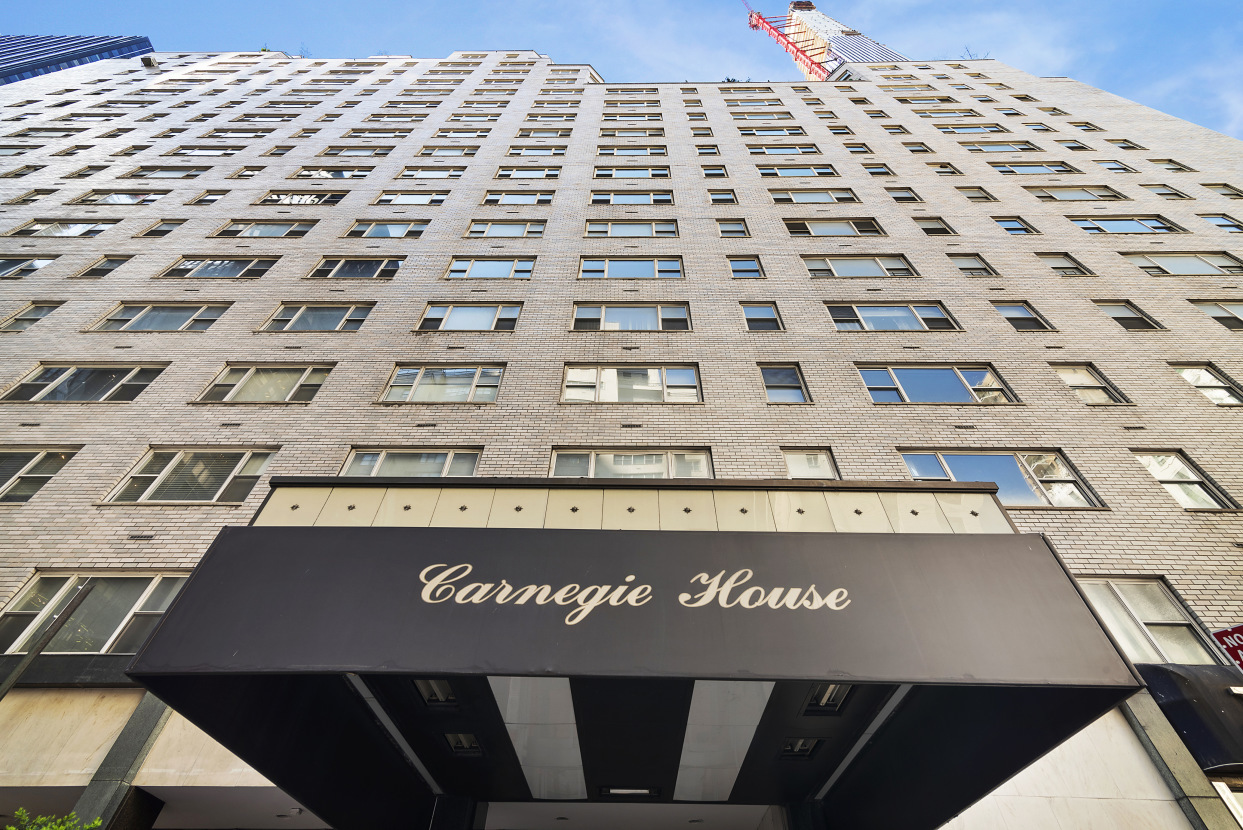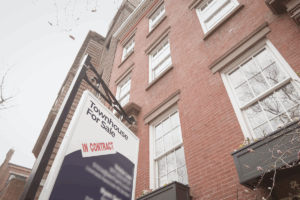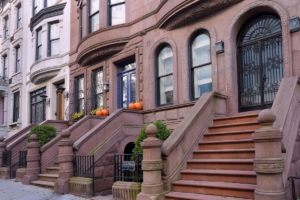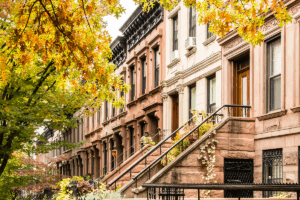Between high prices, broker’s fees, monthly maintenance costs, property taxes, co-op boards, and building restrictions, buying your dream home in NYC can be incredibly complex. So let’s add one more tricky piece to the puzzle: land leases, particularly land-lease buildings.
What Are Land-Lease Buildings?
Land-lease buildings make up a small fraction of the residential buildings in New York. There are roughly 100 land-lease buildings in the city. They are mainly in Manhattan, with a high concentration in Lincoln Square and Battery Park City. Their unique characteristic is that they sit on land that belongs to a landowner — not the building. Yes — a land-lease building does not own the land it sits on. This odd situation came about when the landowner preferred to retain ownership of the ground went with renting the land instead of selling it to the developer.
Most buildings on land leases are co-ops. The land is generally leased for around 50 to 100 years. Each apartment owner in a land-lease building pays a land rent that’s wrapped into their monthly fees.
More To Know About Land-Lease Buildings
Land-lease, or ground-lease, buildings are one of the more interesting quirks of New York City real estate, and the particulars of them should be taken into careful account by potential buyers.
On the one hand, land-lease buildings have much lower entry points for purchase. If you’ve ever seen a NYC co-op priced at 20%, or even 35%, below market value, it’s probably because the ground under the building is being leased. But while land-lease buildings can offer considerable savings on the sale price, their monthly maintenance fees are usually much higher than in comparable apartments. That’s because they have to cover the ground rent. Also, since land-lease co-ops do not own their land, they do not pay real estate taxes. Therefore, owners of land-lease apartments have limited access to property tax deductions.
How Do You Get a Mortgage for a Land-Lease Unit?
Home buyers should also be aware that banks will closely review mortgage applications for units in a land-lease building. According to Tony Jao, a veteran mortgage banker at Investors Bank, banks look closely at the length of the mortgage compared to the number of years remaining on the land lease. So a bank may be unlikely to provide a 30-year mortgage for a unit whose land lease expires in 20 years. And the kicker? It’s more challenging to build equity since buildings depreciate over time while land typically appreciates over time.
“When looking at a land lease, it is important to conduct a risk vs. reward analysis,” said agent Karen Kostiw of Warburg Realty. “A purchaser’s due diligence should include knowing who the landowner is, including their tax structure, what the lease terms are, the financial strength and maintenance issues of the building, and what happens when the lease expires.”
Furthermore, modeling up the cost-saving of the purchase to the outlay of monthly costs is critical. A client of Lindebaum’s purchased a large apartment in a land-lease building. The land lease was for 100 years, and the building had a 421A tax abatement until 2037, which provided significant monthly savings.
“Understanding the risks and potential costs upfront enables a client to decide if a real estate purchase in a land-lease building is a good financial investment for them or not,” said Kostiw.
What Happens When the Lease Runs Out?
When a building’s land lease approaches expiration, two things can happen. Usually, the co-op board and the property owner meet to discuss terms and renew the lease. Appraisers are brought in to value the land, and both sides agree to a price based on that information. Most likely, the ground rent goes up. But it could also go down in the case of a market contraction. There’s also an additional option: the apartment owners can try to buy the land for themselves.
In a recent instance, co-op members cobbled together $185 million to buy the ground beneath the building from its owner. While the purchase moved the building and units into a more stable zone, it came with a high cost. With the buyout, tenants in the co-op faced a new land assessment, prohibitive for some. One longtime resident saw her assessment exceed the value of her 1-bedroom co-op, forcing her to sell.
One lovely co-op building at 100 W. 57th St. in Midtown, Carnegie House, is on a land lease. The expiration and renewal are expected in about 10 years, contributing to some difficulty assessing the accurate market value for units in the building.
“Sellers in land-lease buildings may have trouble selling during the period the lease runs out, as fewer buyers are willing to take on the risk of purchasing in a land-lease building at that time,” said Kostiw.
Theoretically, a land lease could come to the end of its term without renewal, and the building would revert to the leaseholder. It means that co-op or condo owners would face eviction or could become tenants in their homes. But as far as most experts know, this has never happened in New York.
How Home Buyers Can Benefit From Land-Lease Buildings
While land leases can be tricky, savvy buyers can work with knowledgeable real estate brokers to find opportunities that maximize the benefits of a land-lease building. Some of those benefits include:
- Affording a Larger Apartment: “Land lease buildings offer purchasers the ability to invest in a larger home, and in some cases, amenity-rich buildings, at a significantly lower price point, provided their monthly income can cover the monthly shareholder expenses,” said Kostiw.
- Making Money Off the Savings: “Purchasing a land lease reaps significant savings,” said broker Elizabeth O’Neill of Warburg Realty. “In my experience, this can mean $1-2 million (or more) in purchase-price savings. While the maintenance will be higher and is at risk of rising more precipitously, if a buyer can get a better return elsewhere (via the stock market, etc.) and have their money work harder elsewhere, this is a winning scenario. For them, paying a few thousand dollars more per month in maintenance is a relatively small price to pay (literally).”
- Having a Solid Retirement Plan: “I had a couple without kids who didn’t want to rent because they wanted to live in a co-op,” said broker Michael J. Franco of Compass. “They purchased a large land-lease apartment at a substantial discount, as they wouldn’t be able to afford something that size that wasn’t a land lease. They planned to live out their years there, so they weren’t concerned about resale value.”
- Getting a Building in a Desirable Location: “Another thing to keep in mind is that many of these land lease buildings are in popular locations,” said O’Neill. “For example, 40 E 80th Street, 190 E 72nd Street, and 575 Park Avenue. The opportunity to live in these grand buildings is of considerable value to some.”
In general, a well-structured land lease building can be an excellent investment. But every set of factors and circumstances should be examined on a case-by-case basis before. The purchaser should be clear on the financing, duration, and structure of the land lease before purchasing or not purchasing a land lease apartment in NYC.











